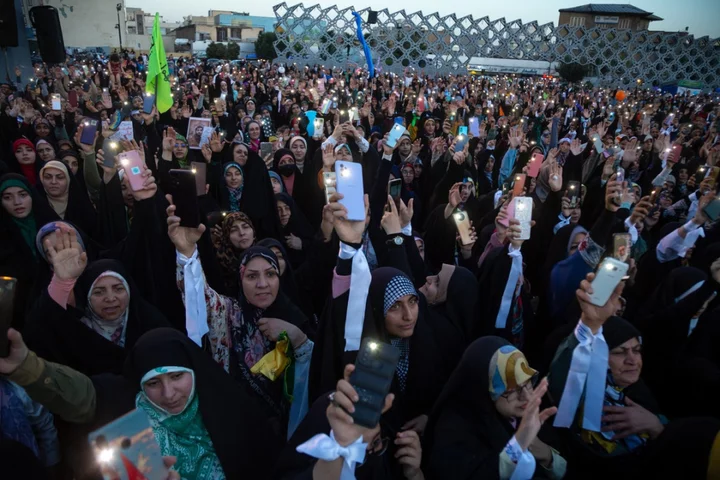Officials in Iran are reportedly looking to use artificial intelligence to issue fatwas to speed up the process of Islamic law rulings.
Clerics in the city of Qom – Iran’s main hub of Islamic learning – are mulling over the use of AI assistants to help them with religious seminaries, the Financial Times reported.
“Robots can’t replace senior clerics, but they can be a trusted assistant that can help them issue a fatwa faster,” Mohammad Ghotbi, who heads a state-linked tech group in Qom, told FT.
Iran is home to over 200,000 Shia clergy, of whom nearly half are based in Qom.
These officials have been the country’s leading force in protecting its religious values amid growing clashes between tradition and modernity as AI use sees growing interest across the world.
Iran particularly sees a growing need to modernise following last year’s nationwide uprising triggered by the death of 22-year-old Mahsa Amini in the custody of the country’s morality police after her arrest for allegedly violating the regime’s mandatory Islamic dress code.
Violence launched by the regime against the protest movement also sparked condemnation from international rights groups, including the UN.
“It pains me to see what is happening in the country – images of children killed, of women being beaten in the streets,” Volker Turk, UN high commissioner for human rights, said last year.
“The old methods and the fortress mentality of those who wield power simply don’t work. In fact, they only aggravate the situation. We are now in a full-fledged human rights crisis,” Mr Turk said.
Now, the regime’s clerical establishment seems to view technology – especially the use of AI – as an attempt to modernise.
While still in infancy, the move to trial the use of AI to issue fatwas is underway in cities like Qom, whose first AI conference was held in 2020, according to FT.
The head of the city’s seminary reportedly shared his views on how AI could advance Islamic studies of senior clergy and speed up their communication with the public.
Interest shown by the clerics also appears to be in line with the views of the country’s supreme leader Ayatollah Ali Khamenei, who said in June that he wants the country to be “at least among the top-10 countries in the world in terms of artificial intelligence”.
Read MoreIran will keep taking hostages – because no one is willing to stand up to them
ChatGPT now has power to ‘see, hear, and speak’
Can a chatbot preach a good sermon? Hundreds attend experimental Lutheran church service to find out
Spotify clarifies position on whether it will ban AI-powered music
ChatGPT now has power to ‘see, hear, and speak’
ChatGPT can now generate images and create illustrated books









